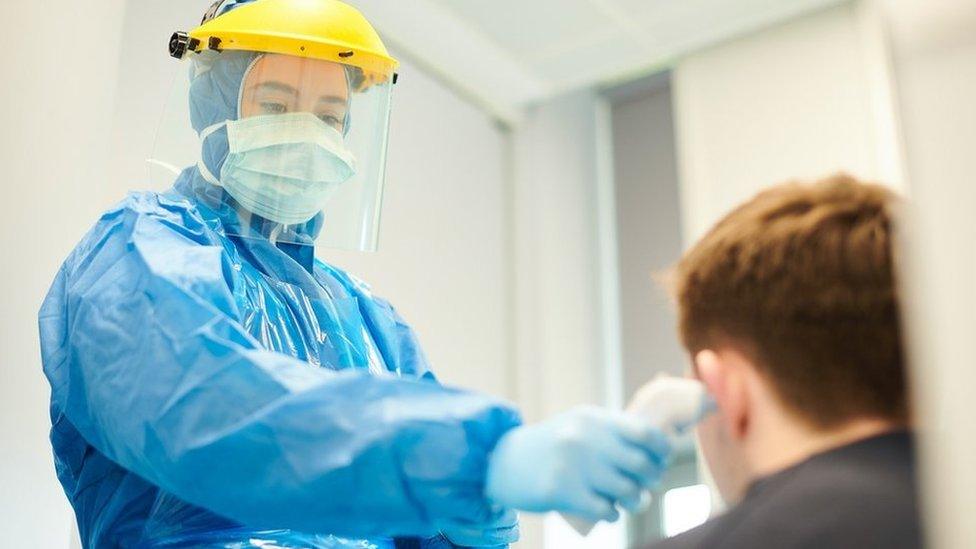Coronavirus grief: 'Lockdown makes a bizarre situation ten times worse'
- Published

"Every time my phone rings, I still think it's her," says Sarah Bredin-Kemp.
Three months ago her friend Rebecca Mack died with suspected coronavirus, aged just 29.
Since then Sarah's had to mourn Rebecca in lockdown.
"It's a really, really bizarre feeling of being a bit lost, maybe emotionally stuck," Sarah, who's 27, tells Radio 1 Newsbeat.
While coronavirus is much more likely to seriously affect older people, young people have died with the illness in the UK and thousands are mourning loved ones who have passed away unexpectedly.
And it's 16 to 29-year-olds who're least comfortable talking about death, external, according to a survey from The Co-op Funeral Care.
Sarah's friend Rebecca was a nurse and had been working for the NHS 111 service for the East Midlands.
In April she began self-isolating at home, where she lived alone, with what she believed were coronavirus symptoms.
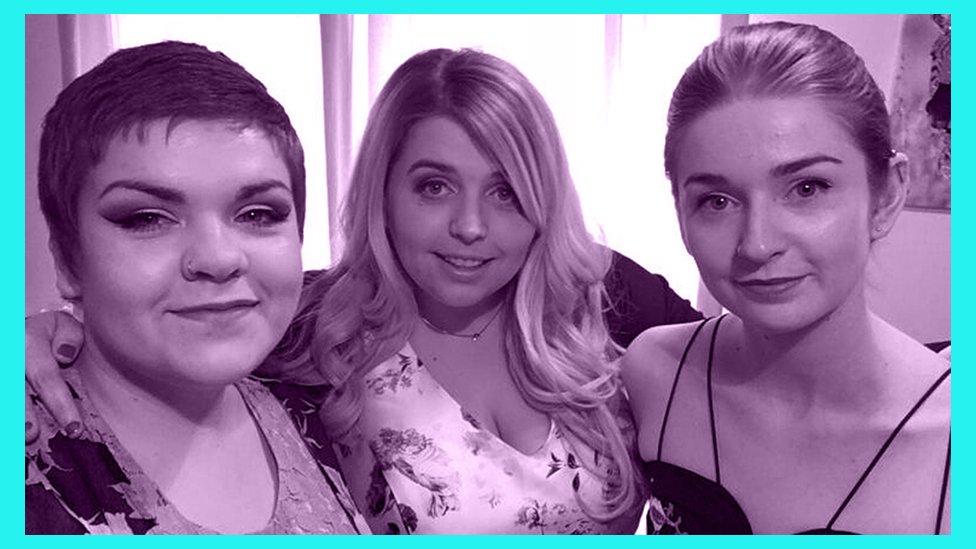
Sarah (l), Rebecca (centre) and Alice used to meet for coffee every week
Sarah and Alice, another of Rebecca's close friends, had no idea Rebecca was at risk of dying.
"We both knew she'd been unwell," Sarah says, "but she'd been getting better and wasn't complaining an awful lot. You couldn't possibly have anticipated she wouldn't survive."
The friends used to meet each week for coffee - but with those little rituals being impossible during lockdown, the shock of Rebecca's death has been harder to absorb.
"Part of grief for me, is that it hits you most when you can't do that thing you did with that person," says Alice, who's also 27.
"Seeing friends again, going to the pub, going for cocktails, I think that's going to be when it really hits."
The pandemic also meant Sarah and Alice couldn't be at their friend's funeral.
"There's something big to be said here about how important funerals actually are," Sarah says.
"We've both discussed how traumatic it is to lose somebody so close and then only be able to stand on the street and watch the hearse go by. There's no closure."
"Being under lockdown has made what is a very, very bizarre and unnatural situation just 10 times worse," adds Alice.
'It's the club you never really want to join'
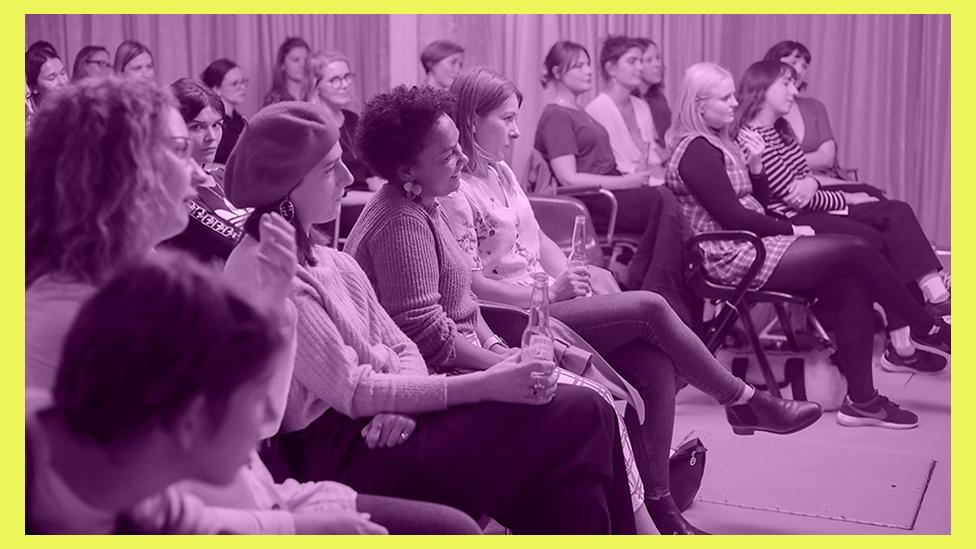
'Nothing beats someone sitting there and being fully heard and fully seen'
This idea of lockdown making things worse is backed up by Rachel Wilson, founder of The Grief Network - which provides a community for young people grieving.
"You need your family and friends, you need counselling or exercise or whatever it is - and having so many of those things blunted and moved online is really tough," she says.
The pandemic has seen more requests for support from her network - even though Rachel says "it's the club you never really want to join".
"Nothing beats someone sitting there and being fully heard and fully seen."
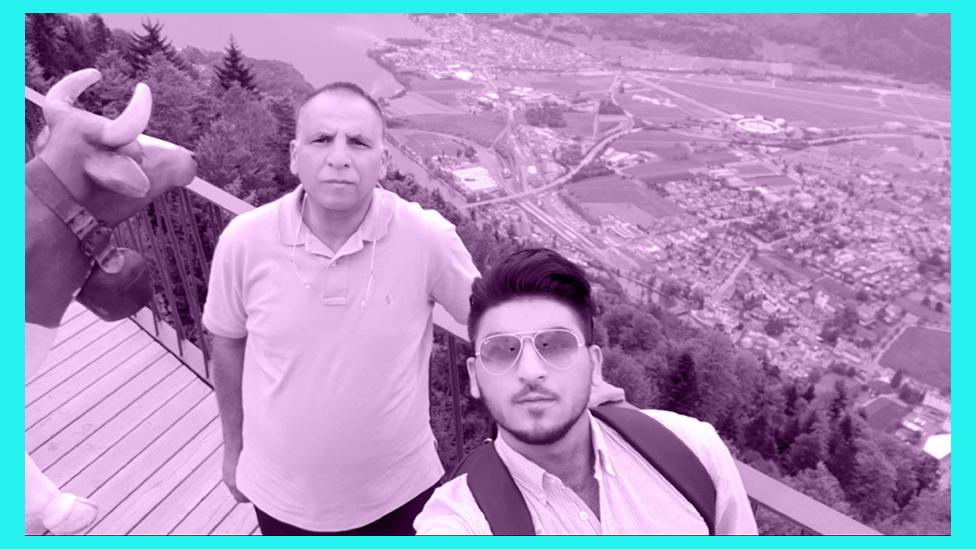
Zain and his dad Haji
Zain Siddiqui, 29, was devastated to lose his father Haji in April.
"You're trying to make sense of how someone fit and healthy can be gone within seven days. It just doesn't make sense."
His father, a florist from Birmingham, was able to walk into the ambulance when he was taken to hospital with coronavirus symptoms.
Zain decided to follow social distancing rules and didn't hug him goodbye. "I thought, 'No, he's going to be ok, he's gonna come back home and I'm going to give him a hug then'.
"I think I'll regret that forever, because that was the last time I could have hugged him."
Zain says his dad was the "backbone" of the family, so after he died, Zain felt he needed to step up.
"I think I took it upon myself to be a sponge. Being a sponge is not the easiest - punches do become heavy, and you kind of almost forget your own grieving process."
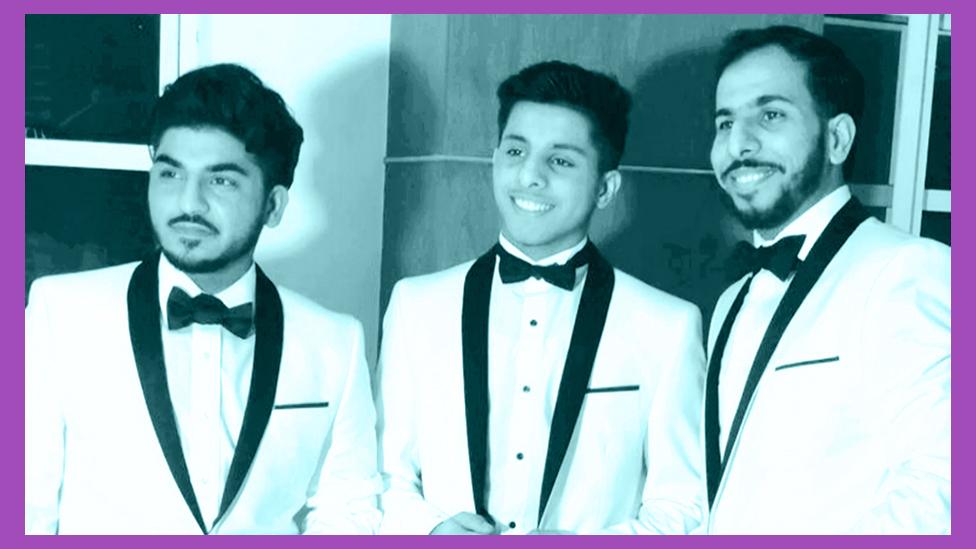
Zain, left, felt he should be a 'sponge' to support his mum and two brothers
"At times I think I'm now having to reflect on those moments and say, 'Hold on a second, I need to give some time to myself, I need to look after my own mental health. I need to be in a fit state to be able to help everyone else.'"
He says his Muslim faith has helped him find more peace by taking a spiritual approach.
"At times the anger and denial builds up, but then you think, these things are predestined. You just accept it. I wouldn't say move on. Because you will never move on.
"It's OK to cry. I think at times there is a stigma around that but it's OK not to be OK."
Zain has just gone back to work in the NHS, in a job where he is constantly reminded of Covid. But he's found it comforting to talk to colleagues about his dad - especially those who've also lost parents.
"I was able to relate to them more, because at times you think that other people don't really know what you are going through because they have both parents."
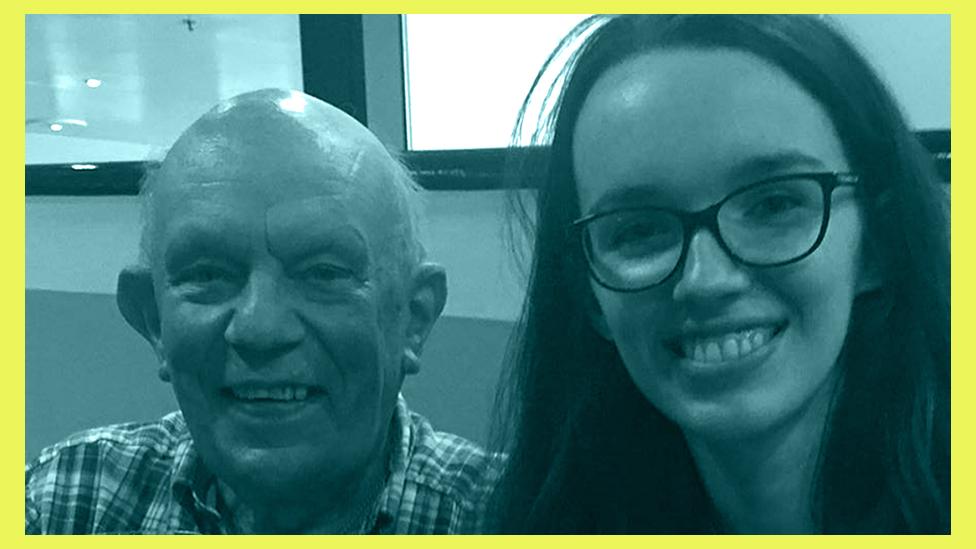
Gabby says losing her dad in lockdown was a 'unique situation'
Gabby also lost her dad David to coronavirus - something she never expected when he went into hospital in April for a routine blood transfusion.
"He had to stay overnight, and when he was in the ward he did say there was a man coughing.
"We were taking the mick out of him and saying, 'Dad, it's just somebody coughing, don't be silly.' We never thought he'd get coronavirus at all."
Then her dad had a test.
"On the Saturday it came back as a positive but even so I said, 'Dad, you're gonna fight it'. And then on the Monday he passed away."
"I think sometimes people forget, as they start to move on with their own lives, that actually the reason why we're all in lockdown is because people are passing away.
"It's such a unique situation that perhaps most counsellors don't even understand the grief in lockdown because you can't do a lot of the grieving techniques in these times.
"Covid grief is so different."

Let's Talk About Loss usually holds in-person events but has made them virtual
Beth French is 25 and founded Let's Talk About Loss, which runs meet-up groups for people aged 18 to 35 who have been bereaved.
She says the media coverage of the virus can be difficult for people who are grieving.
"The way the media reports [coronavirus] is sharing statistics of how many people have died and I think the humanity of death has been completely ripped away and your grief has been reduced to just being one of many and becoming a statistic."
Let's Talk About Loss is running virtual meetings but Beth also suggests a number of podcasts to check out. "I'd really recommend The Grief Gang and the Dead Parent Club."
Zain likes the idea of doing something active to memorialise someone - he is thinking of paragliding which is something his father enjoyed.
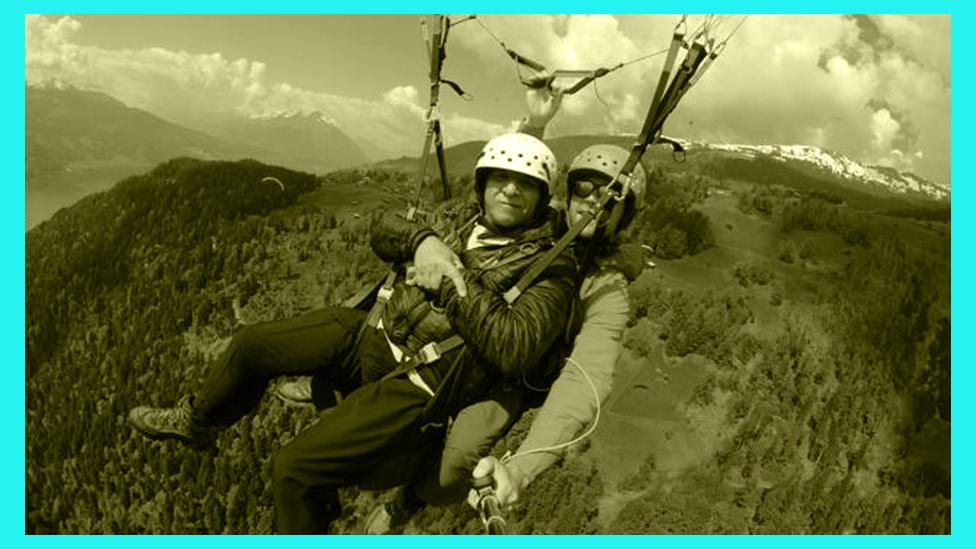
"Do something for them, don't just remember them. Set up a charity or some sort of gift on their behalf."
But he adds there is no best way to grieve. "I think as long as people can come out on the right side of things, there is no right or wrong answer."
If you have been affected by any of the issues raised in this article, BBC Action Line is a good place to start looking for help.


Follow Newsbeat on Instagram, external, Facebook, external, Twitter, external and YouTube, external.
Listen to Newsbeat live at 12:45 and 17:45 weekdays - or listen back here.
- Published1 July 2020
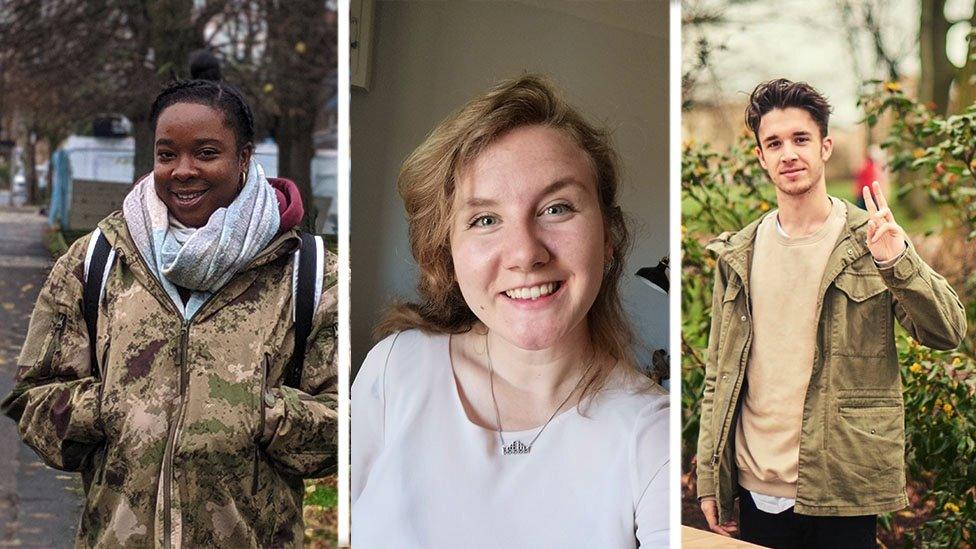
- Published24 June 2020
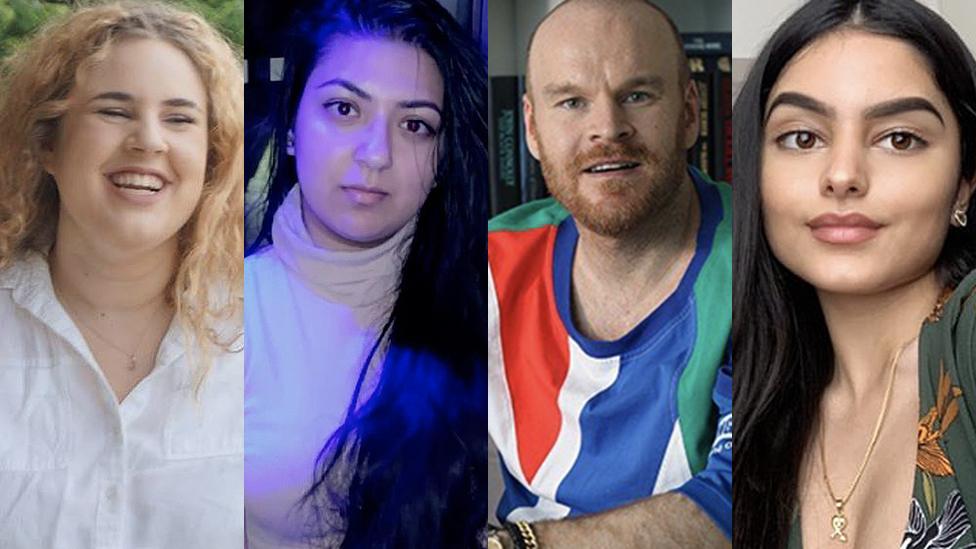
- Published22 June 2020
